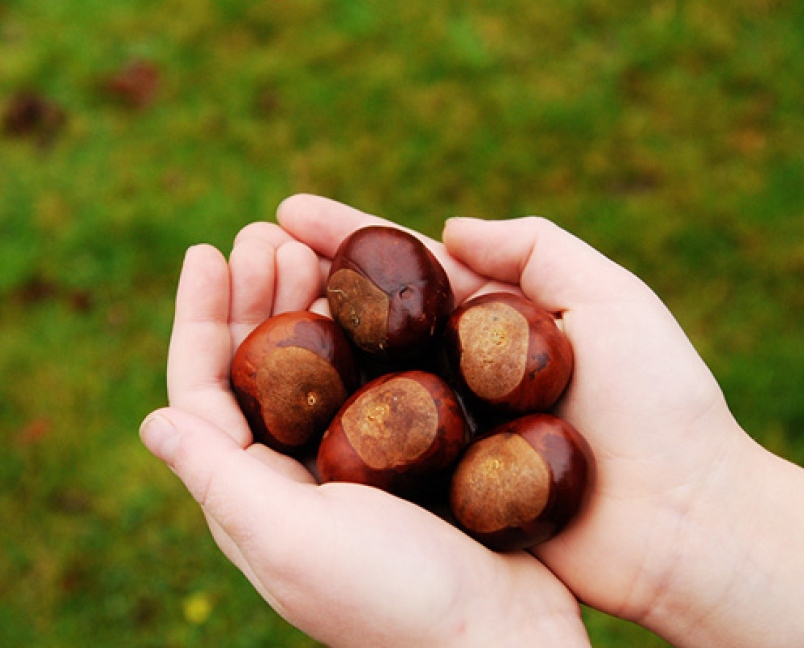Aesculus hippocastanum, also known as horse chestnut trees, are native to Asia and southeastern Europe. Aesculus is the Roman god of medicine, and hippocastanum refers to its early use as a medicinal herb. Their oval, toothed leaves are highly resistant to disease, and the flowers are white with hints of red. The flower stalks are borne in dense racemes in the spring. The seeds are edible and used as medicine. They grow in full sun and tolerate a wide range of soil conditions. The species name is unclear, but the word “horse chestnut” comes from the Latin “horse” and “chestnut”. Horse chestnut is a native of southeastern Europe. The seed is a glossy, red-brown conker enclosed in a green husk.
Many people use horse chestnut seed oil or extract as an alternative to other medicines for rheumatism, inflammation, and edema. In addition to its beneficial effects on the body, horse chestnut has also been used to treat fever. The tree’s saponosides have a number of benefits, from enhancing circulation to promoting wound healing. The saponosides of horse chestnut form a complex mixture called Aescin, a substance found in both plants and humans. They have anti-inflammatory and anti-edema properties and are highly tolerated. It is originally used to treat coughing and broken wind in horses.
The anti-inflammatory and antioxidant properties of horse chestnut may improve the health of the arteries and heart. Aescin, a compound found in horse chestnut, is an anti-inflammatory and anti-swelling substance that has been studied in animals. The plant’s aescin content helps improve the tone of vein walls, which can lead to varicose veins and edema. Aescin is often used in combination with other heart and circulatory tonics such as butcher’s broom, witch hazel, and Ruscus aculeatus. The unguent containing this plant is used for a number of other ailments, including telangectasia, ecchymosis, and hemorrhoids, as well as the treatment of burns and ecchymosis.
Horse chestnut seed extract is widely used in Europe for chronic venous insufficiency. Additionally, it increases the permeability of capillaries, allowing excess fluid to drain back into the circulatory system. The horse chestnut plant is often used in topical lotions. This compound has shown promise in treating infertility associated with varicocele. Aescin may also help improve sperm quality and reduce the size of varicocele, two conditions that may cause infertility in males. Although more research is needed, the benefits of horse chestnut seed extract are impressive. People suffering from chronic venous insufficiency may develop symptoms such as leg swelling and varicose veins. The horse chestnut seed extract even helps prevent oedema from forming in the first place.
Studies have shown that horse chestnut extract can reduce inflammation and relieve high blood pressure, but the benefits of this supplement are not clear. While the safety and effectiveness of horse chestnut extract are yet to be proven, its anti-inflammatory and anti-cancer properties are promising. The seeds of Aesculus hippocastanum contain a broad spectrum of natural compounds. Of these, Ascins are the most prominent bioactive molecules, they inhibit the proliferation of cancerous cells and induce apoptosis. Moreover, these compounds have an excellent tolerability profile, which makes them an excellent choice for cancer patients with a case history. It also inhibits several blood chemicals and has anti-inflammatory properties. In addition, it constricts veins and slows the leakage of fluid out of them. Despite these promising results, further research is needed to determine the best dose for a patient.
Although Aesculus hippocastanum extract is generally safe, some people may experience gastrointestinal irritation, dizziness, or headache after consuming horse chestnut. This compound also has antiplatelet effects, so patients taking blood-thinning medications should seek medical advice before using it. In addition, Aesculus may interact with certain medications, such as aspirin and warfarin. If you’re using horse chestnut extract in supplement form, consult your health care provider to find out if you should take any special precautions.
- Dandelion Extract: What It Is, Benefits, Uses and Side Effect - April 23, 2024
- Is Berberine Extract Help For Weight Loss? - April 11, 2024
- Why Is Pysllium Husk Powder A Popular Meal Replacement Ingredient? - April 3, 2024




